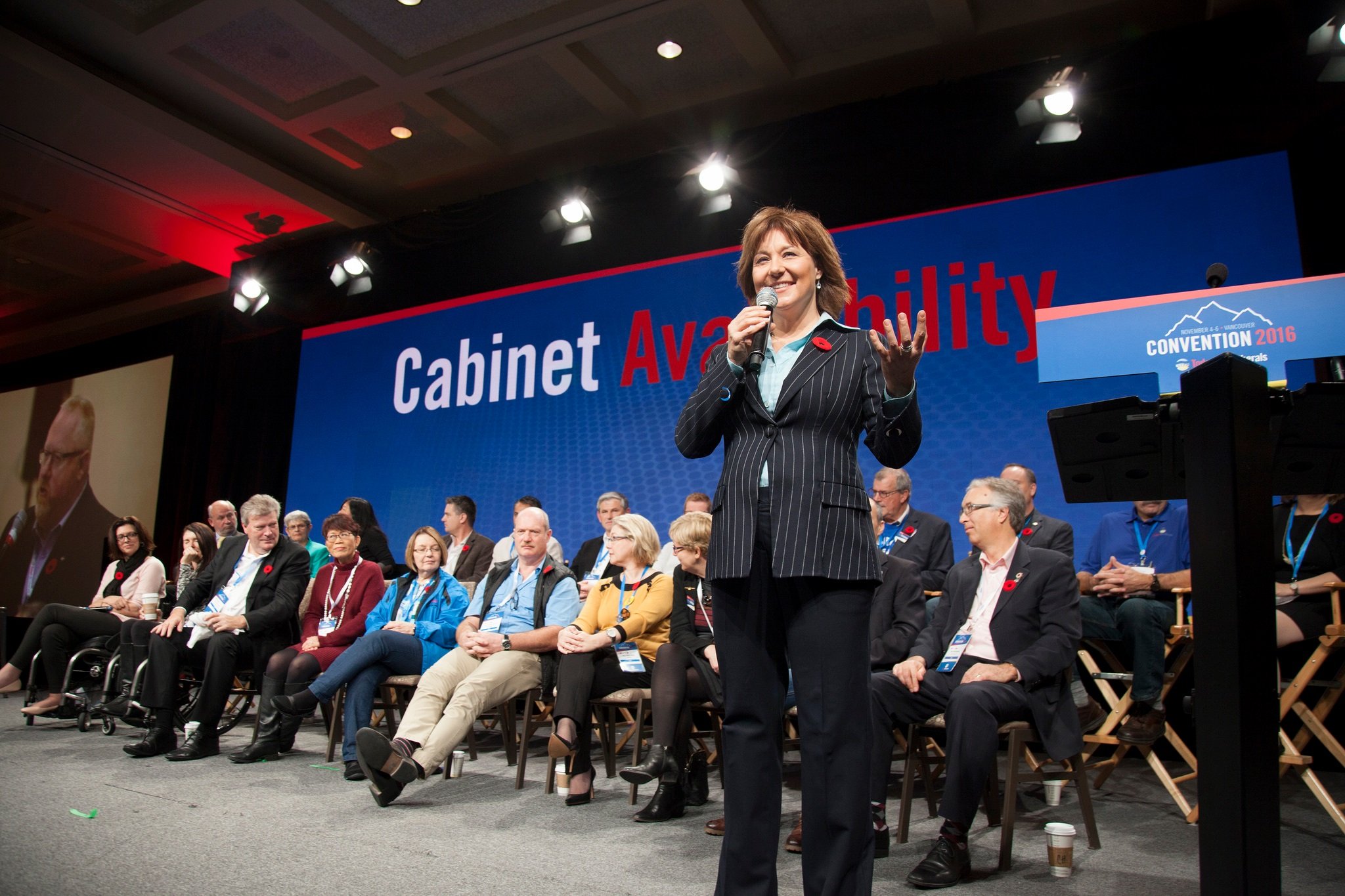Here are six things you need to know about the race to replace Christy Clark, based on the rules the BC Liberal Party released Tuesday.
First, you better have money or some rich supporters if you even want to try for the job. It will cost you $50,000, payable to the party, to become a candidate. (Plus $10,000 that you’ll get back if the party doesn’t levy any fines for bad behaviour during the campaign.)
Second, it’s going to cost a lot more to win. The spending limit for candidates — on top of the entry fees — is $600,000. That’s a 33-per-cent increase from 2011 when Christy Clark won the leadership, and 71 per cent higher than the spending limit in the 2014 NDP leadership race. Candidates who jump into the race and raise enough money will be able to spend about $120,000 a month on their leadership campaigns. (Money, of course, does not guarantee success, as the BC Liberals proved in the May election. They spent $13.6 million compared to the NDP’s $7.9 million, and got just 1,566 more votes.)
Third, and further confirming the Liberals’ blindness to the public concern about its support for Wild West political fundraising, there are no limits on donations. If a developer or union or even foreign government wants to write a $500,000 cheque to try and get a friendly candidate elected, that’s OK with the Liberal party. The donation will eventually be disclosed — but not until 90 days after party members have voted to elect their new leader.
This free-for-all comes, remember, six months after the Liberals’ deathbed repentance Throne Speech pledged to ban corporate and union political donations and limit individual donations.
Fourth, still on money, the party is turning the leadership race into a dandy fundraiser. Assume four candidates end up in the race, as in 2011. First the party collects their entry fees — $200,000 in total. The rules also require candidates to give it 20 per cent of any money they raise. So if each candidate hopes to spend $600,000, he or she will need to raise $750,000, with $150,000 going to the party — another $600,000 if four candidates do well at fundraising. And, finally, the party gains the revenue from new memberships sold by candidates hoping to win votes. In 2011, 50,000 people were added party membership lists, worth about $400,000. (Memberships are $5 for 14 to 25 year olds, $10 for everyone else.)
All in, the party should collect more $1 million, leaving a tidy profit after organizing the vote and six leadership debates. (In Vancouver, Surrey, Prince George, Nanaimo, somewhere in the Thompson-Okanagan and “a location designated by the BC Liberal Indigenous Network.”)
Fifth, the Liberal party has learned from the 2011 race, when a cat was signed up as a voting member by a Christy Clark supporter and questions were raised about mass signups of new members and potential fraud.
Leadership candidates from all parties typically race to sign up new members before the voting cutoff — Dec. 29, in this case. It’s easier to sign up a bunch of new people you know will support you than woo existing party members. The risk is that organizers will cut corners, paying for memberships or signing up hundreds of new members who have no interest in the party. The Liberals have barred cash and prepaid credit card payments for membership to reduce the fraud risk.
The party has also made former attorney general Geoff Plant returning officer to oversee the leadership race, roughly the equivalent of Jimmy Stewart putting on a sheriff’s badge to clean up a Western town in some old black and white movie.
Sixth, the BC Liberals have once again adopted both a preferential ballot and weighted voting. Using the preferential ballot, members mark their first choice and, if they choose, rank the other candidates. If no one gets 50 per cent on the first ballot, the lowest candidate is dropped. The ballots of those who supported that candidate are counted again, based on their second choices. And the process continues until someone has 50-per-cent of the vote. (It took three rounds of counting in 2011 before Clark beat Kevin Falcon with 52 per cent of the vote.)
Weighted voting, adopted for the first time in 2011, is an effort to make sure the results aren’t determined by thousands of new party members signed up in a few ridings by a candidate’s team.
Each of the 87 ridings gets 100 votes for the next leader, with the breakdown determined by the ballots of those who live in the riding. If Surrey-Fleetwood has 6,000 Liberal party members, and North Coast 600, each riding still has the same influence in deciding the outcome.
It’s a reasonable approach, ensuring that a candidate can’t be elected leader with massive support in a handful of big urban ridings, or based on an appeal to a narrow special interest group.
But it also highlights the Liberal-mandated disparities in democratic representation in the province. The electoral system’s regular reviews are intended to produce ridings with roughly equivalent populations, so all votes have the same value. But the former BC Liberal government ordered the Electoral Boundaries Commission to ensure changes wouldn’t reduce the representation from 17 ridings in the North, the Cariboo-Thompson, and Columbia-Kootenay. (The Liberals won 13 of those ridings in the election.)
As a result, the 10 ridings with the lowest population — 295,000 — will have the same number of votes as the 10 largest, with 612,000 population, giving small, rural ridings an oversized role in choosing the next leader.
I came to close to adding a seventh point, the Super Bowl factor. The Liberals have allowed three days of voting, with a winner to be announced on Feb. 4, better known as Super Sunday — a day to celebrate advertising, fading pop stars, football and concussions. That prompted much criticism from punditlandia.
But really, is it a big deal? The Liberal leadership decision might be overshadowed in traditional media by the Super Bowl, but still reach big audiences on social media. And the new leader will be set to pounce on the NDP government’s critical first budget due less than two weeks after the leadership vote.
What should be a big deal is the lack of contribution limits or timely disclosure. The party’s next leader could be decided by big money — and members won’t know about who’s funding the candidates until after the decision is made. ![]()
Read more: BC Politics
















Tyee Commenting Guidelines
Comments that violate guidelines risk being deleted, and violations may result in a temporary or permanent user ban. Maintain the spirit of good conversation to stay in the discussion.
*Please note The Tyee is not a forum for spreading misinformation about COVID-19, denying its existence or minimizing its risk to public health.
Do:
Do not: